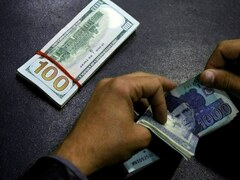“The menace of terrorism is again rearing its ugly head, threatening our nation’s security as well as regional peace and prosperity.” These remarks were passed by President Asif Ali Zardari as he addressed the joint session to mark the beginning of the new parliamentary year on Thursday.
The statement from the country’s highest office bearer comes at a time when Pakistan is witnessing a resurgence of terror attacks.
On Friday, a suicide bomber attacked a vehicle carrying five Japanese nationals in Karachi’s congested Landhi area. Fortunately, the Japanese nationals, who were identified as engineers working for the management of an export processing zone in the port city, escaped unharmed as police shot down a gunman accompanying the bomber. Kudos to our police.
Unfortunately, this was not the case last month after a suicide bomber rammed a vehicle into a convoy of engineers working on a hydropower project at Dasu in Khyber Pakhtunkhwa, killing six people including five Chinese nationals.
The bombing followed a March 20 attack on the strategic Gwadar Port, which is a vital cog to the multi-billion-dollar China-Pakistan Economic Corridor (CPEC) project, and a few days later an assault on the country’s naval air base, in Turbat, Balochistan.
And don’t forget: the Chinese were also among the casualties in a 2021 attack as well.
For decades, the Pakistani nation has bravely dealt with the menace of terrorism, however, the recent string of attacks targeting the country’s critical infrastructure and foreign nationals is deeply alarming.
It not only strains bilateral relationships but is also detrimental, in particular, to the government efforts in pitching Pakistan as a viable and attractive global investment destination.
“Pakistan needs all hands on deck to revitalise its economy … our primary objective should be to attract foreign direct investment,” said President Zardari in his Thursday address.
However, this is easier said than done in a country that for years has struggled to attract international investors.
As per the State Bank of Pakistan (SBP) data, during the first eight months of the ongoing fiscal year, FDI clocked in at a mere $820.6 million, declining by 17.1% year on year. This is a far cry from the level seen in 2007 when its 12-month figure stood at $5.6 billion.
Several factors have contributed to this sorry state of affairs including political instability, infrastructure challenges, bureaucratic hurdles, and economic challenges to name a few.
The fact that other countries have presented themselves as better viable destinations does not take away from the fact that Pakistan has miserably failed to attract dollar inflows.
However, the top contributor to the FDI decline in Pakistan has been safety issues, and the latest terror incidents have laid bare the glaring deficiencies in the country’s security apparatus, which needs to be fixed on an urgent basis.
In recent months, Pakistani authorities, amid the establishment of the Special Investment Facilitation Council (SIFC), have ramped up engagements with bilateral partners including the GCC countries, UK, USA, and EU, inviting them to invest in key sectors including agriculture, IT, and mining.
The effects of these engagements are just beginning to emerge, with reports of a Saudi investment of up to $1 billion in the Reko Diq Copper Gold project making the rounds.
However, all these efforts could go down the drain, if the security situation in the country worsens further. Thus, the government needs to nip the evil in the bud and address it.
It should not come as a surprise that these attacks are happening more frequently at a time when Pakistan is looking to attact investments. But the responsibility to stop them lies squarely on the government as well.
This could be achieved by adopting a comprehensive strategy involving increased vigilance near border areas, implementing enhanced security measures at key infrastructure sites, and engaging with communities to address their underlying grievances.
Pakistan should also use its diplomatic weight and stress on neighboring countries to take a stricter stance against terrorist groups.
Only through sustained peace and stability can Pakistan achieve its true economic potential.
Otherwise, you can chalk up all the fancy numbers, slides in your pitch deck, but if the world around you is crumbling, no one will dare spare a second glance at your screen.
The article does not necessarily reflect the opinion of Business Recorder or its owners
The writer is the Head of Business Desk at Business Recorder (Digital)




















Comments
Comments are closed.